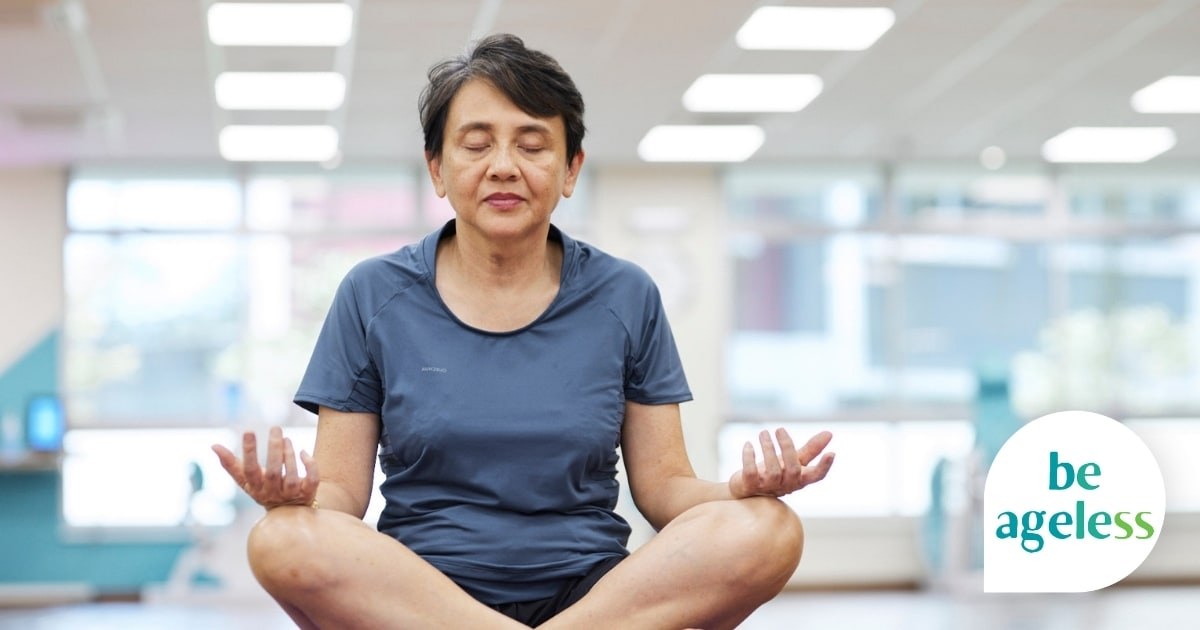
Feeling more forgetful or careless as you get older? It’s not unusual to forget things from time to time. But if you’re frequently stressed out, unable to focus or experiencing mental cloudiness, it might be time for some extra self-care.
Your brain is responsible for vital functions such as memory, breathing, feeling, thinking, and movement. However, it starts to naturally decline physically from the age of 40. The good news is, you can start taking steps now to help your body’s most important organ stay sharp and healthy longer, to enjoy a fulfilling life well into your later years.
What affects Brain Health?

Brain health is influenced by both genetics and lifestyle. While there’s not much you can do to change your genetic heritage, simple lifestyle changes can effectively slow down age-related cognitive decline and lower your risk of developing neurological conditions like dementia, stroke, Alzheimer’s and Parkinson’s disease.
Studies have shown that positive mental wellbeing is associated with better brain health,1 so don’t just ignore or diminish the impact that any chronic stress, loneliness or depression have on your brain vitality. Instead, try these 6 care tips to help you achieve better cognitive and mental wellness as you live agelessly.
1. Eat A Healthy Diet
Eating well is one of the best ways to support brain function. Think of your diet as fuel for your brain to help it perform at its best!

- Leafy, dark green vegetables are bursting with nutrients like vitamin K and folate that are essential for nourishing brain cells. They are also part of a balanced diet, so include plenty of greens like spinach, broccoli and kale in your meals.
- Fatty fish such as salmon, cod and sardines are excellent sources of omega-3 fatty acids. Your body uses it to build brain cells and protect your brain from memory loss and depression.2
- Berries are rich in flavonoids and have antioxidant properties. These bite-sized treats combat oxidative stress and inflammation which are detrimental to brain health.
- Nuts and seeds are a great alternative source of omega-3 fatty acids if you’re not a fan of fish. Snack on pumpkin seeds to get your intake of magnesium and iron, which are essential nutrients for learning and the prevention of impaired brain function.
2. Lead An Active Social Life

Social interactions give our brains a workout. A typical social encounter would require you to decide where to go, think about what to say, and recall the names and personal details of people you meet. It’s no wonder that studies show that seniors who connect with their community have the slowest rate of memory decline!3
Dedicate time to building a rich social network as a source of support and intellectual stimulation for yourself. Excellent ways to get involved with your community include volunteering to help others or doing these 10 fun things with your loved ones!
Or if you need a listening ear, reach out to the caring staff at the National Care Hotline 1800-202-6868, or download the CareLine app, a 24-hour telephone befriender service for seniors.
3. Get Quality Sleep

When it comes to sleep, it’s important to get 7 hours of uninterrupted rest every night. This gives your brain time to repair itself, store memories and flush out harmful molecules associated with diseases like Alzheimer’s. Older people may experience changes to their sleeping pattern and find it harder to enter deep sleep, resulting in sleep deprivation that negatively impacts their cognitive processes and mood.
To improve your sleep hygiene, try adopting good sleeping habits like going to bed on time consistently and avoiding caffeine, tobacco and alcohol at least 4 hours before bedtime, as these reduce the quality of your rest.
If you’re experiencing chronic insomnia, see a doctor to check if underlying issues like diabetes and sleep apnea may be causing your poor sleep quality.
4. Learn Something New

Your brain can adapt and get stronger when you stimulate it, creating new neural pathways that aid in a higher level of thinking. The secret to brain stimulation lies in trying something new. It’s like a physical workout for your brain when you initiate activities like learning a new skill or language. Other small changes you can make to your daily routine include taking a different route to your destination or using your less dominant hand to perform some simple tasks.
Instead of engaging in routine sedentary activities like watching TV and sitting at a coffee shop, give puzzle games like Sudoku a try. Better still, sign up for a variety of novel experiences at your local community centres or active ageing hubs. Lifelong learning can boost your self-confidence and sense of purpose for increased mental wellbeing. It’s self-care at its best!
5. Exercise Regularly

You’re probably aware that exercise is good for you, but did you know its critical role in preserving brain and mental health?
In addition to preventing conditions like diabetes, hypertension and depression that contribute to cognitive deterioration, physical activity boosts blood flow to your brain and increases a protein that aids in the survival and growth of new brain cells.
For a fun and safe workout, try our Active Ageing services for a variety of fitness activities tailored to older adults to help you get that rush of natural mood-boosting endorphins!
6. Practice Mindfulness

Mindfulness helps you to focus on the present, prompting you to be more aware of your body, mind and surroundings. By observing your own mind, you gain the insight needed to manage your stress triggers and increase productivity.
A simple mindfulness exercise you can try is the Hand on Heart Technique. Watch it here to learn how to use a warm and safe touch to release oxytocin, which is the brain’s direct antidote to the stress hormone. By placing your hand over your heart, and taking deep, slow breaths while connecting with comforting thoughts, you can gradually reduce your anxiety.
Improving Brain and Mental Wellness at Any Age
Ageing doesn’t mean you need to slow down mentally. You can play an active role in boosting your brain and mental health, and the sooner you start, the better. Enable yourself to feel stronger and enjoy a longer period of good health by adopting good lifestyle choices and habits that focus on diet, sleep, exercise, and mindfulness!
Get in touch with us
Need more recommendations to stay active in body and mind? Find out more about our Active Ageing services and chat with us for more ideas to begin your adventure as an active ager today!


